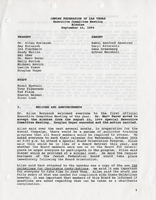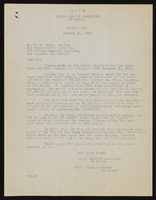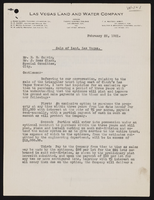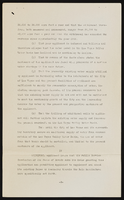Search the Special Collections and Archives Portal
Search Results
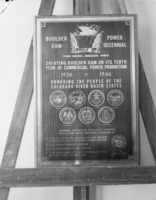
Film transparency of the Boulder Dam Power Decennial plaque, October 25, 1946
Date
1946-10-25
Archival Collection
Description
An image of the Boulder Dam Power Decennial plaque, which was made for the ten year anniversary of Boulder Dam, renamed Hoover Dam in 1947. Depicted on the sign is an outline of the downstream face of the Hoover Dam, along with outlines of the state seals of Arizona, California, Colorado, Nevada, New Mexico, Utah, and Wyoming. Transcribed from text across the sign: "Boulder Dam, Power Decennial. Flood Control - Irrigation - Power. Saluting Boulder Dam On Its Tenth Year Of Commercial Power Production. 1936-1946. Honoring The People Of The Colorado River Basin States. Whose initiative brought forth Boulder Dam, making possible: The maximum utilization of the water resources of this great river system; The prevention of floods; The conservation of water; The availability of hydroelectric energy to a wide area."
Image
Pagination
Refine my results
Content Type
Creator or Contributor
Subject
Archival Collection
Digital Project
Resource Type
Year
Material Type
Place
Language
Records Classification


